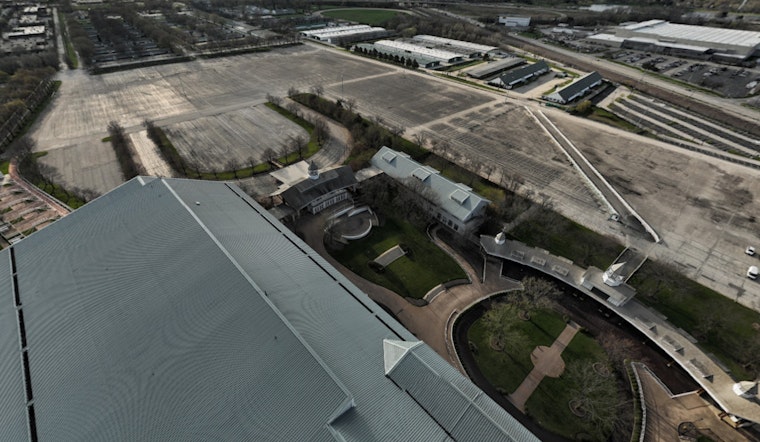
In the latest twist in the saga of the Chicago Bears' potential move to the suburbs, Arlington Heights officials have put forth a tax compromise they hope will sweeten the deal for the storied NFL franchise. Tackling the issue head-on, the village proposed an agreeable property tax cut for the Bears' would-be domed stadium site at the former Arlington International Racecourse. This financial maneuver aims to reduce the team's tax burden from an estimated $10 million to a more palatable $6.3 million for 2023 and down further to $3.6 million for 2024, as disclosed in a village proposal released after a public records request by the Chicago Tribune.
Village Manager Randy Recklaus outlined their strategy in a statement to the Tribune, suggesting that the community should not "expect a windfall before construction even begins." Recklaus emphasized the importance of the Bears paying their fair share while considering the project's unique nature, which might not align with usual state and county assessment procedures. The plan pivots on the Cook County Board of Review’s valued property at $124.7 million, offering a sliding scale of tax rates starting at the 25% commercial rate for the first half of 2023 before settling at the 10% vacant property rate for subsequent periods. However, responses from the team and affected school districts remain pending.
Meanwhile, the Bears have shifted their offensive line, publicly committing $2 billion towards a domed stadium on Chicago's lakefront and stating that their focus has shifted to sites in Chicago. Arlington Heights Mayor Tom Hayes noted, with a tone of cautious optimism, that "Ultimately, if something is meant to be, it will be," according to a village board meeting quoted in the NBC Chicago report.
At a recent village board meeting, officials drew comparisons with other developed sites and spoke with determination to maintain a balanced tax load. "All we’re talking about right now is what the fair amount of property taxes should be before any development occurs and while the property is vacant and not generating any revenue," Recklaus told the attendees. There was also a grassroots eagerness for the village trustees to stand firm in negotiations, with resident Roger expressing, "I don’t want to pay for the Bears as a taxpayer," a sentiment echoed by fellow community member Martin Bauer who added, "I would love to have the bears here, but it has to be on the right terms."
The broader game plan for Arlington Heights is to bolster the local tax base without overburdening either commercial or residential taxpayers. As Recklaus pointed out, the village will only back a development that "increases tax levels for the village above current levels." For now, all eyes are on the response from the Chicago Bears and the impacted school districts as the village endeavors to find common ground for the benefit of all parties. This latest development comes amidst a challenging moment for the legendary team as it looks to modernize its home turf, either with a breath of fresh suburban air or by doubling down in the City's downtown core.









